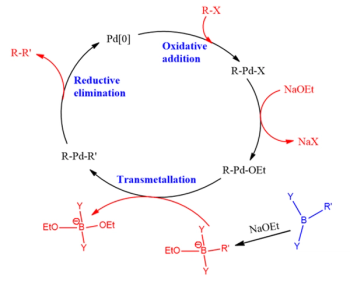
ASMS 2023: Previewing the Award Presentations This Week
We offer a sneak peek at some of the award presentations that will be taking place at the ASMS 2023 Conference this week.
ASMS 2023 will feature several oral sessions recognizing this year’s award winners for their contributions to mass spectrometry.
On Monday June 5th from 4:45–5:30 pm, an oral session will take place that will recognize Carol V. Robinson of the University of Oxford for winning the 2023 ASMS John B. Fenn Award for Distinguished Contribution in Mass Spectrometry. ASMS President Julia Laskin will preside over the session, which will open with the presentation of the Al Yergey MS Scientist Awards. This year’s recipients of the Al Yergey MS Scientist Awards are Eduard Denisov of Thermo Fisher Scientific, Jodie Johnson of the University of Florida, and Amina Woods of the National Institute of Drug Abuse Intramural Research Program at the National Institutes of Health.
Dr. Robinson will also deliver a talk at the award session. She is most known for developing mass spectrometry methods for the analysis and characterization of membrane proteins. Her work has greatly improved how we understand membrane protein complex structure and what role lipid binding plats in membrane protein function. This has had great impacts on drug discovery and disease mechanisms. Most notably, Robinson has:
- Pioneered method development that enables gas phase analysis of membrane protein complexes
- Applying ion mobility MS and collision-induced unfolding methods to investigate lipid-membrane protein binding
- Applying high-resolution MS to resolve the complexity of lipid-protein binding events
- Created innovative methods for the native analysis of membrane protein complexes and lipid binding.
The Award sessions continue on Tuesday June 6th. From 4:45–5:30 pm, an oral session will take place that will recognize Brandon Ruotolo of the University of Michigan – Ann Arbor for being the winner of the 2023 Biemann Medal. ASMS President Julia Laskin will preside over the session, which will open with the presentation of the Research Awards and the PUI Research Award. This year, the 2023 ASMS Research Award recipients are Kelly Marie Hines of the University of Georgia, Jesse Meyer of Cedars-Sinai Medical Center, and Stacy Malaker of Yale University. The PUI Research Award recipient for 2023 is Erica Jacobs of St. John’s University.
Dr. Ruotolo will also deliver a talk at his award session. He is well-known for having made significant contributions to the development and application of novel high performance mass spectrometry (MS) technologies for the broader part of his career, with a focus on applications of high impact to the biology and medical communities. Examples of his career achievements include leadership in the development of ion mobility MS (IM-MS) for structural characterization of biopolymers; refinement of collision induced unfolding (CIU) methods that enable determination of the number of autonomously folded domains within proteins and characterization of stability reflective of changes in both local and global protein structure; the use of CIU to probe the relative stability of protein-ligand interactions; the development of chemical cross-linkers to stabilize protein structure in the absence of bulk solvent; integration of IM-MS and other structural MS methods as a high-throughput approach for structural proteomics; and the application of IM-MS as a screening tool for therapeutic drug discovery.
Newsletter
Join the global community of analytical scientists who trust LCGC for insights on the latest techniques, trends, and expert solutions in chromatography.




